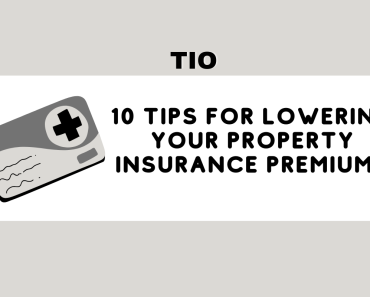As a property owner, one of the crucial decisions you’ll need to make when buying insurance is choosing the right deductible. A deductible is the amount you pay before your insurance company starts covering the remaining cost of the claim. It can range from a few hundred dollars to thousands of dollars, depending on your policy. In this article, we will discuss everything you need to know about property insurance deductibles.
What Is a Property Insurance Deductible?
A deductible is a predetermined amount that a policyholder must pay before the insurance company pays out for a claim. In the context of property insurance, the deductible applies to losses incurred due to damages to the property, such as fire, theft, or natural disasters.
How Does a Property Insurance Deductible Work?
Suppose your property suffers damage due to a covered peril, and the cost of the damage is $10,000, and you have a $1,000 deductible. In that case, you will need to pay the first $1,000 out of pocket, and the insurance company will cover the remaining $9,000. If the cost of damages is less than your deductible, you will have to pay the entire cost of repairs.
What Are the Different Types of Property Insurance Deductibles?
There are two types of property insurance deductibles: a flat dollar amount deductible and a percentage deductible.
Flat Dollar Amount Deductible
A flat dollar amount deductible is a fixed amount that policyholders pay out of pocket before the insurance company pays for the claim. For instance, if you have a $500 deductible, you will pay the first $500 of the claim, and the insurance company will pay the rest.
Percentage Deductible
A percentage deductible is calculated as a percentage of the total amount of coverage you have. If you have a property insured for $500,000 and a 2% deductible, you will have to pay the first $10,000 of the claim, and the insurance company will cover the rest.
How to Choose the Right Deductible for Your Property Insurance?
Choosing the right deductible depends on your financial situation and the amount of risk you are willing to assume. A higher deductible can lead to lower premiums, but it also means you’ll have to pay more out of pocket if you need to file a claim.
Pros and Cons of High and Low Deductibles
High Deductibles
- Pros: High deductibles come with lower premiums, which can save you money in the long run.
- Cons: You will have to pay more out of pocket if you need to file a claim, which can be challenging if you don’t have sufficient savings.
Low Deductibles
- Pros: With a low deductible, you will pay less out of pocket if you need to file a claim.
- Cons: Low deductibles come with higher premiums, which can be costly in the long run.
How to Determine the Right Deductible?
When choosing a deductible, it’s essential to consider your financial situation, your property’s value, and your risk tolerance. If you have a higher financial cushion and can afford to pay more out of pocket, you might consider a higher deductible to save on premiums.
Conclusion
Choosing the right deductible is a critical decision when buying property insurance. By understanding the pros and cons of high and low deductibles and considering your financial situation, you can make an informed decision. Remember, a deductible is an amount you’ll need to pay out of pocket before the insurance company covers the rest of the claim.
FAQs
- Is a higher deductible better for property insurance?
- A higher deductible can lead to lower premiums, but it also means you’ll have to pay more.
- Can you change your deductible after purchasing a policy?
- Yes, you can usually change your deductible by contacting your insurance provider.
- What factors should I consider when choosing a deductible?
- You should consider your financial situation, the value of your property, and your risk tolerance.
- How can I save money on property insurance?
- You can save money on property insurance by choosing a higher deductible, improving your property’s security measures, and shopping around for the best rates.
- What should I do if I can’t afford to pay my deductible?
- If you can’t afford to pay your deductible, you may be able to set up a payment plan with your insurance company or seek financial assistance from government programs or charities.








